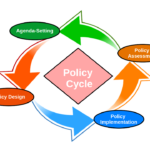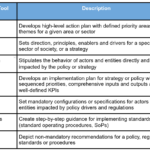I was in touch with our team supporting the ongoing meeting in Kenya at the end of day 1. It seems the meeting went pretty well with over 60 people attending the three sessions we had planned on policy, governance and MDGs. I was also informed some of the emerging issues which also included feedback from Motorola partners who were also present during out VoIP chat. I was then asked to provide inputs for the 2nd day. Noting the time difference, I suggested I’ll do that via email while the team went out for dinner and a bit more.
I entitled my message: Don’t Stop Thinking About Tomorrow! Here is is:
1. There is an urgent sense of going beyond meetings and more meetings and we all agree on this. So the idea of the International Network of Social Innovators for HD (INSIHD) is a good one as it suggests concrete action. We however need to carefully build this. We have done an initial concept note that we can share tomorrow for discussion. INSIHD should be simple in structure and dynamic in implementation. From the UNDP point view, the idea is to bring solutions to many of the concrete problems that staff in COs are currently facing and either do not know how to address or have no knowledge that there is already a solution that some else has tried somewhere, outside from the UN. We thus need to build a portfolio of what can these initial group on innovators have to offer in both the areas of governance and the MDGs (following in the two panels) that you guys so successfully run today. Needless to say, this can also go beyond UNDP programming and involve other sectors. We can also call this new partnership not a typical PPP but rather Multi-stakeholder partnership where all players are welcome to join a play a role.
2. Seem to me that at the opening of the meeting tomorrow, we should be able to provide a summary of the outcomes of today both by panel but also overall. This will help guide the first session, identify some of the key gas and then try to prioritize them in order to make them more actionable. This is key as it directly links to INSIHD.
3. I take the point on policy as critical. But to talk about policy we need to also have decision-makers involved. That’s is why I was asking about government representation tomorrow. Since there is little what we can do is suggest way in which we can link social innovation to development policies. We need to bring the two camps together by putting technology in the back a bit and instead offering policy makers new solution to traditional development gaps. These solutions are not only tools but also change the way in which governments and citizens interact. This is an important point as the transformation potential of ICTs is usually sacrificed when we reduce them to tools. In the end, it is about a new way of doing business with greater stakeholder involvement, between links between government and the people, and medium term development impact on the ground.
4. On the MDGs, we should be aware of the UN jargon here. But we should also mention the post2015 agenda and how can this group and the International Network play a role not only in trying to shape the agenda but also in implementing in the near future. We are thus talking about ling term commitment.
5. One final point that was not mentioned is that of South South and Triangular cooperation. We need to put this on the table right now and make partners realize the potential of this on a global scale. There are also new emerging models for international cooperation that do not need to depend on the North only -nor does the North should feel it is obliged to finance the South. A mix of all these seems to be the future of development agendas and programmes, especially if we facto in the Rise of the South as highlighted by our latest HDR.
Hope this helps.
Cheers, Raúl





